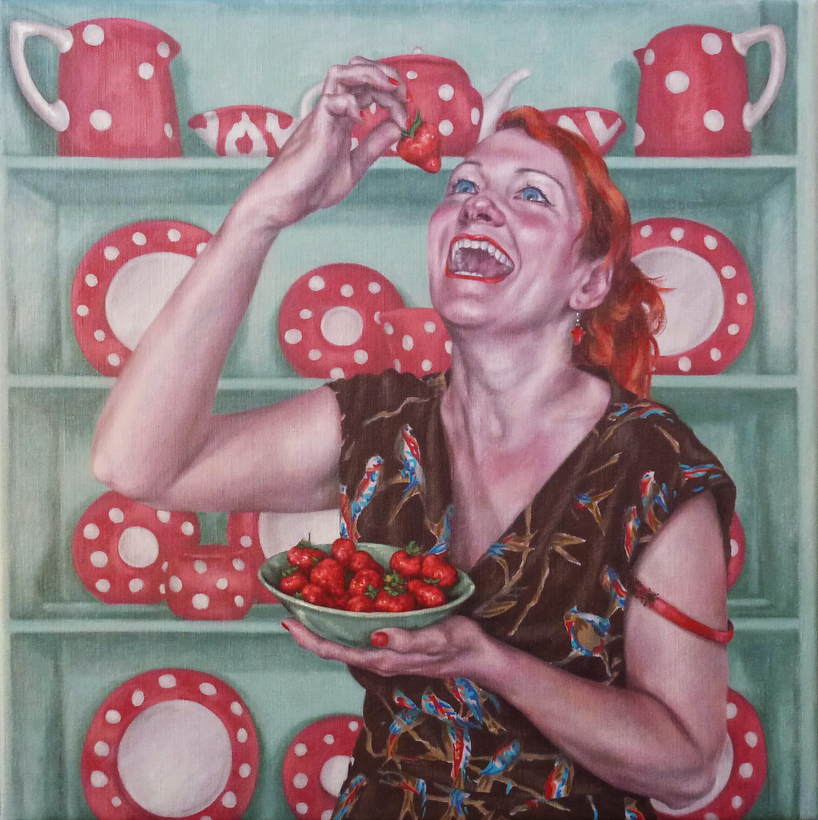If politics is show business for ugly people, where does art fit in? Artists attractive enough to play themselves in biopics are few and far between; only Lucian Freud and Pauline Boty come to mind. Even the sexy ones—Picasso, Dalí, Warhol—look like they’ve tarried too long by the trick-or-treat masks. It comes as some surprise, then, to meet the young English painter Roxana Halls.
Remember that Vanity Fair cover featuring k.d. lang and Cindy Crawford? Halls, who abandoned formal art training at the age of 19 and is largely self-taught, looks like the offspring those two had in a parallel universe. (A mutual friend says, “No—she looks like the baby of Bowie and Nigella.”) Seeing Halls beside her paintings at private viewings, posing for the cameras of adoring fans, it’s easy to get the distinct impression that one may have strayed into the presence of one of the great characters of the age and is witnessing the thrilling spectacle of a genius just warming up.

Vivifying tired tropes of “empowerment,” her depictions of female beauty and cruelty sear and skewer dour ideas of What Women Want—which would appear to be neither mere fun nor money, but some magical merger of the two. The paintings are consciously staged invitations into an internal world that remains obscured by the formality of the artist’s palette yet has a resonance beyond the subject matter, as though the message is concealed in order to inform. Halls is that refreshing breed of female artist: the mischievous, optimistic feminist.
Her protagonists are usually women caught celebrating in the midst of chaos or disaster—the polar opposite of portraits of well-behaved women in various stages of undress. Halls’s subjects are very much seen and heard, whether they are friends snickering together while eating dessert or running away from a scene of disaster—a plane crash or a burning building. They make their own rules. A bride runs, guffawing, having jilted her groom. A painter smears clown smiles in red paint onto the portraits of decorous women. Halls’s characters are euphoric, incorrigible, and impervious to moral judgment; her colors are vibrant, sometimes Fauvist in their disregard for respectability and real life.
As a gay female artist in a world where—more than any other branch of creativity—men do and women are, it’s thrilling to see female subjects who seem to exist solely for their own gratification. Halls’s women aren’t offended by the male gaze. Look all you like, buy all you like, they seem to say. You’ll never get to touch this talent.
Julie Burchill is a columnist for The Sunday Telegraph and the author of several books, including, most recently, Unchosen: The Memoirs of a Philo-Semite

